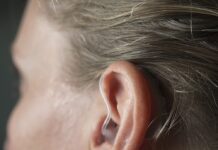
There was a medical conference held in San Diego California recently and a physician presented a case study about a woman who took a large amount of B vitamin called biotin. I’m sure you’ve heard of it, it’s the B vitamin that everyone takes to try to get thick hair and strong nails. Anyway, the 55 year old woman’s level of thyroid hormone spiked so high she experienced thyrotoxicosis (extremely high levels of thyroid hormone), yet she had no history of Graves’ disease, Hashimoto’s thyroiditis or thyroid disease of any sort.
The problem arose from the woman taking a high dose of biotin which she was using for multiple sclerosis (MS). Biotin is found naturally in meats, fish, beans, egg yolks and nuts. If you’re deficient, you might look older than you should, your cuts don’t heal as fast, your heart rhythm might be irregular, your hair might be falling out and you’re probably exhausted.
She was diagnosed with pseudohyperthyroidism because her thyroid levels went up, but she did not exhibit classic symptoms of elevated thyroid. She was on other medications as well. Her doctors stopped the high-dose biotin supplements for three days and retested her thyroid levels and they got closer to normal. Could this be a coincidence? Doctors wondered that too, so they re-challenged her with high-dose biotin and sure enough, the TSH and Free T4 levels changed, but then normalized again (after stopping biotin).
Biotin would not increase utilization of thyroid hormone, or cellular entry. It would only crank up levels of T4 hormone (which is inactive), it would not increase levels of T3 (the active form), nor would it it drive the thyroid hormone into the cell, which explains why she had high levels in her blood, but did not have associated hyperthyroid symptoms, hence pseudohyperthyroidism, as opposed to hyperthyroidism. If this doesn’t make sense, refer to my book Thyroid Healthy: Lose Weight, Look Beautiful and Live the Life You Imagine.
One more reason biotin causes apparent ‘hyperthyroidism’ activity may be due to interference with lab assays. Regardless of how or why…physicians should be informed that it can happen so they can distinguish between this phenomenon versus a true endocrine thyroid disorder. Patients should be aware as well. After all, you want to be diagnosed properly and not pinned with a disorder you don’t really have. You also don’t want your medication altered unnecessarily.
If you take a biotin supplement in high doses, stop it 3 to 5 days before you go in for your test so it doesn’t throw off your test results and make it look like you have high levels of thyroid (when you are clinically hypothyroid or normal). If you would like to read more details, I’ve written a more comprehensive version of this article, and it can be emailed to you after you sign up for my free newsletter at suzycohen.com.






